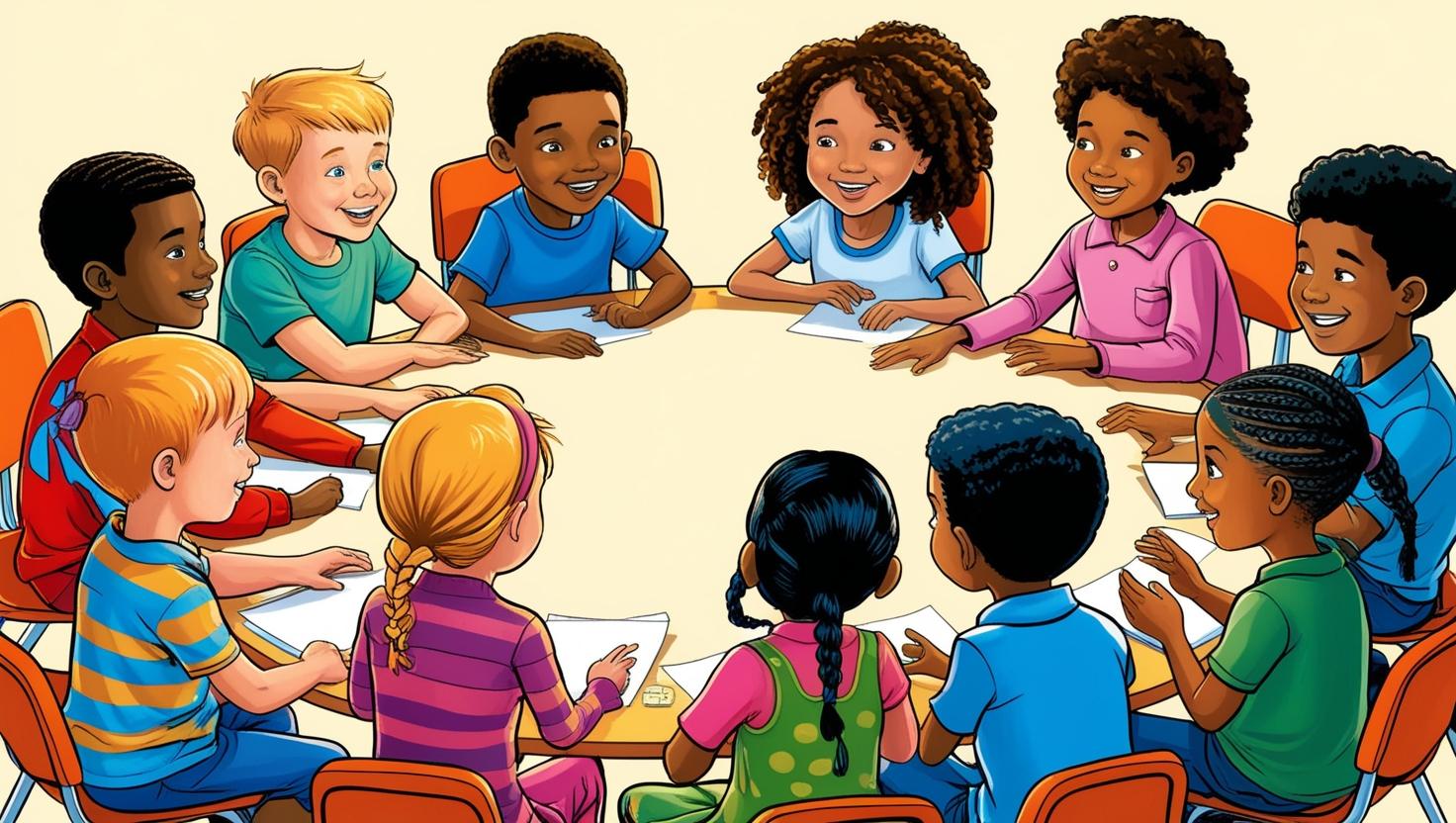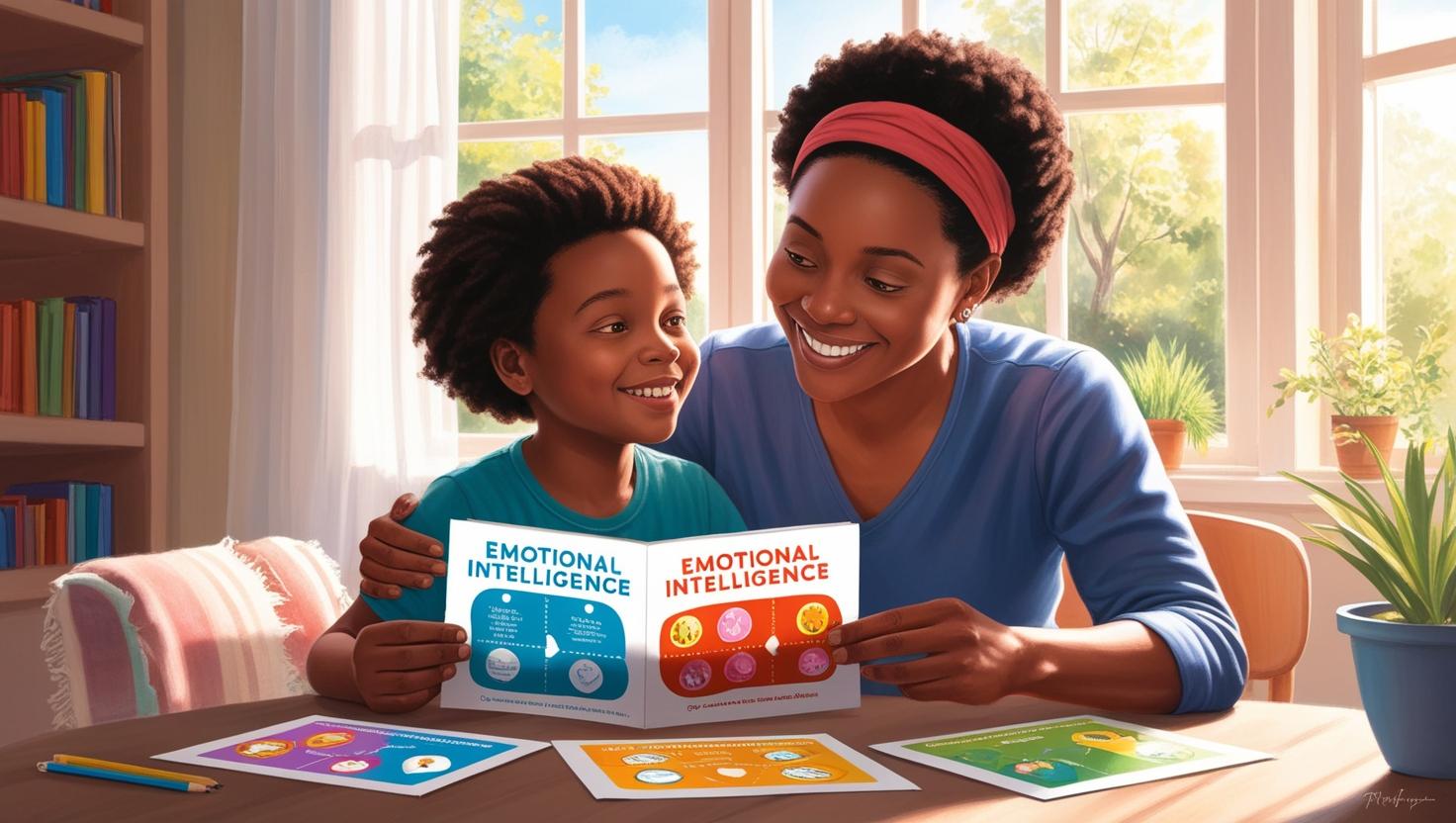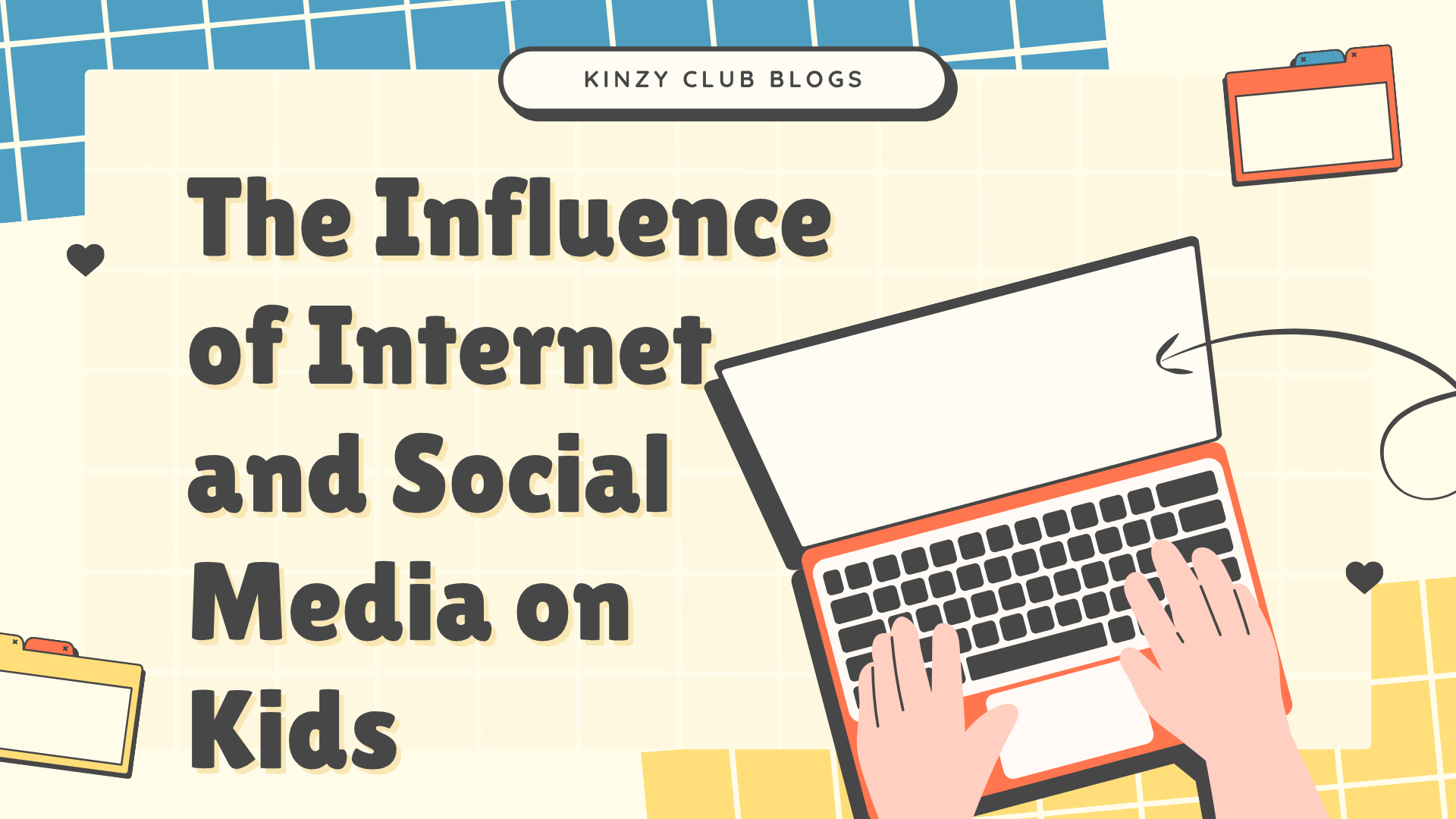Let’s be honest — parenting doesn’t come with a manual (though wouldn’t that be great?). We’re all figuring it out as we go, trying our best to raise kind, confident, and happy little humans. While we focus a lot on school, grades, and achievements, there’s something just as important (if not more): Emotional Intelligence !!
Remember our childhood when we often struggled to handle our emotions, understand what elders are saying, and not totally lose our calm over smallest of things – say not getting the ice cream of our choice or sharing with siblings? That’s what we’re talking about here. In this blog, let’s explore what emotional intelligence is and how we can help our kids develop it..
Lets understand, What Emotional Intelligence is?
Emotional intelligence (EI) broadly means:
- Not freaking out when you’re upset
- Understanding what someone else might be feeling
- Saying “I’m mad” instead of throwing a Lego across the room
- Being able to say sorry — and mean it
Nobody is born knowing any of above. We all need to learn it. Just like we learn how to tie shoes which requires help from elders, patience, and a few tries before we learn it.
Why Does Emotional Intelligence Matter?
Research says, kids with stronger emotional intelligence are able to:
- Handle their anger/frustration better (say – open to sharing their loved objects or fewer meltdowns when they go to any grocery store 🙏)
- Able to Make friends more easily
- Know how to talk about their feelings instead of just acting them out
- Are more confident and resilient
- All in All , they’re quite easier to be around, you see them smiling and acting more calm
In this digital world, where we are full of distractions and pressure, teaching our kids on how to understand and manage their emotions can be one of the best gifts we can give to them.

In the above picture, you can see, a group of kids, aged 6-10, sitting in a circle and are engaged in a collaborative activity, showcasing expressions of empathy, understanding, and active listening.
“How do I identify if My Kid is developing Emotional Intelligence?”
It’s not about being perfect — it’s about progress. Here are some green flags:
- Your kid is being vocal about their feelings, say, “I’m sad because…” or “That act of yours made me angry.”
- They are able to notice when someone else is upset and they offer a hug or a kind word or try to make them feel better
- They ask for help when they’re overwhelmed
- After a fight with a friend or sibling, they try to make it right
Even toddlers can also show signs of being emotionally aware when we give them the right space and guidance..
How Do I Actually Teach This?
Here’s the good stuff — practical, no-fuss things you can do every day:
1. Talk Feelings, Not Just Behavior
Instead of “Stop yelling!” try: “You seem really frustrated. Want to talk about it?”
Name the emotion. This helps them understand what they’re feeling and know it’s okay to feel it — even the ugly ones.
2. Be Their Emotion Coach (Not Just Referee)
When you see your child is upset, please don’t rush to make them feel good or fix it immediately. Just be there:
“I get it. That was really disappointing, huh?”
Validate their feelings first. Then help them figure out what to do next. It’s not always about solutions — sometimes they just need to be heard.
3. Show, Don’t Just Tell
Remember, we don’t have to pretend to be a perfectionist, just be real to your kids:
Tell them how you are feeling – “I’m feeling super stressed today, so I’m going to take some time off or take few deep breaths.”
When your child sees you handling your emotions in a healthy way, they learn that it’s absolutely normal to feel this way — and that it’s possible.
4. Make Empathy a Daily Thing
Ask your child: “What do you think we can do to make a difference in a poor child’s life?”
Try to engage your child with book reading, story-telling, movies, even cartoons can be great empathy-training tools. Watch movies or cartoons or discuss about stories or books with your child, pause and ask them how characters might be feeling to make enable them to develop empathy.
5. Build a Safe Space for ALL Emotions
No feeling is “bad.” Let them know: “It’s okay to cry. I’m right here.”
This doesn’t mean letting them hit or scream without consequences — it means separating the emotion from the action. The feeling is okay. The behavior? That’s what you work on together.
Bonus Idea: The “Feelings Toolkit”
This one’s fun (and super useful). Create a little kit together with things like:
- A simple emotion chart (with faces or emojis!)
- Crayons and paper for drawing feelings
- A Jar in which they can put their feelings by writing on a paper, fidget toy, or stress ball
- Stick some Positive cards around them like: “I’m brave,” “I can try again,” or “It’s okay to ask for help.” “I will succeed”
This will give your child something tangible to reach to when their emotions feel too big to handle.
And Hey, Some Days Will Be Messy
Even the most emotionally aware kid will have off days — just like we do. This is absolutely okay.! Emotional intelligence doesn’t mean being stern or holding through your emotions. Its okay to cry or yell at times. It means learning what to do with those feelings.
If you see your child is really struggling with things like anxiety, emotional regulation or anger, or social issues, there’s no shame in asking for professional help. Take them to a child psychologist so that they can help you in handling your child’s feelings.
Final Thoughts
Raising an emotionally intelligent kid isn’t a fancy thing. It’s about developing connection, curiosity, and consistency in your child. Somedays sitting with them when they cry instead of rushing to “fix” it.
It’s about saying, “Me too — I feel that way sometimes,” and giving them a hug. Let them feel their emotions and help them find themselves while juggling with their emotions. Every time we show up to our kids with empathy and love, we end up teaching them powerful lessons for life.
And that? That’s what really sticks.





